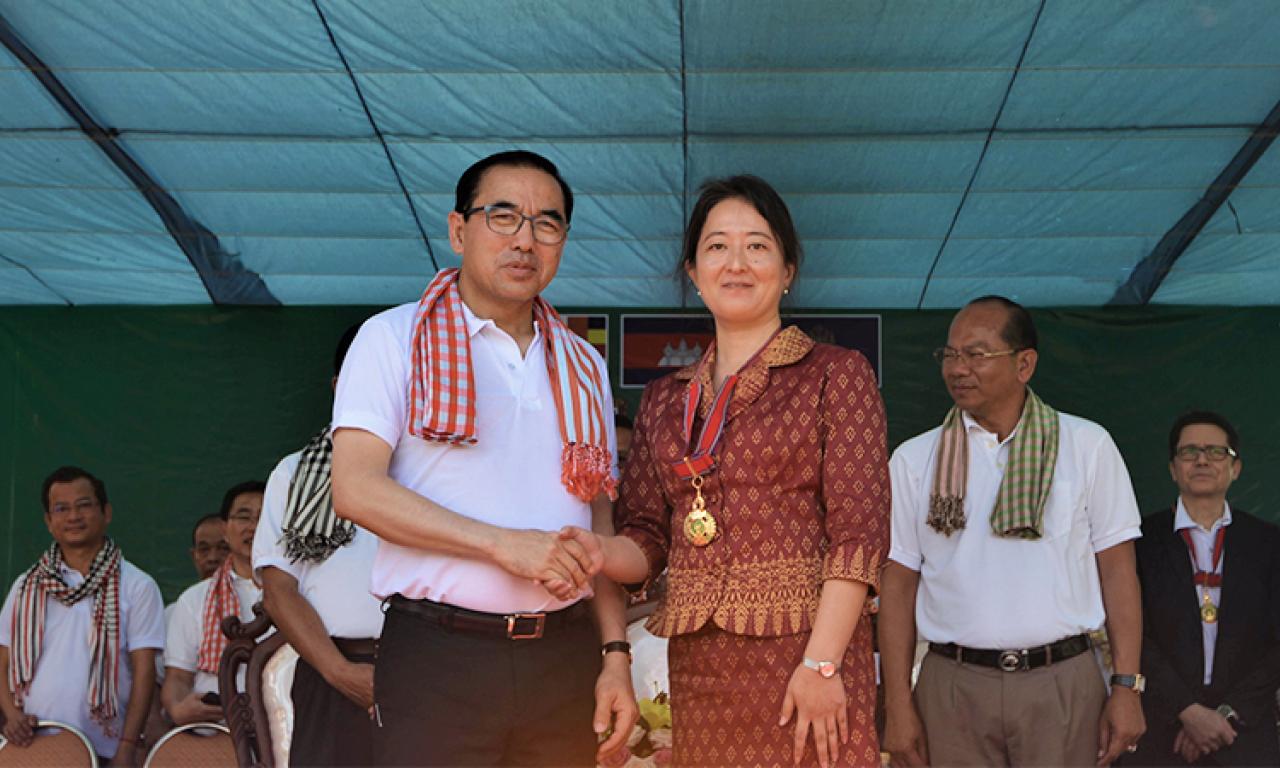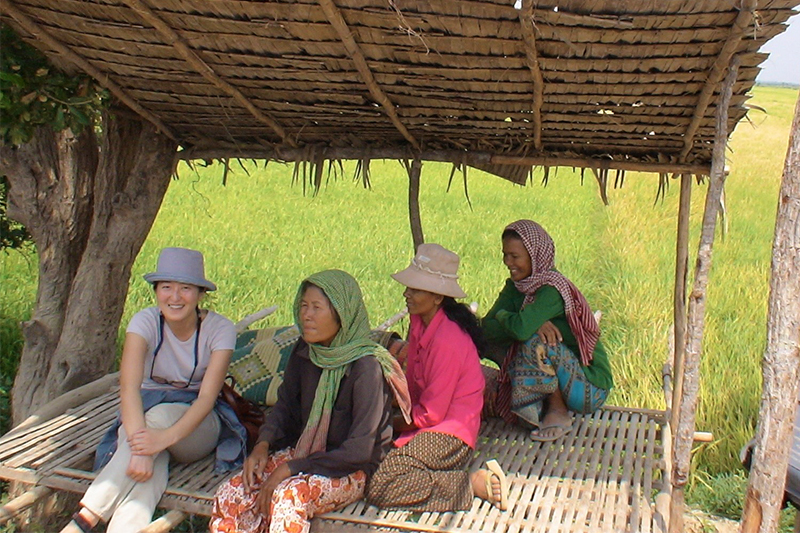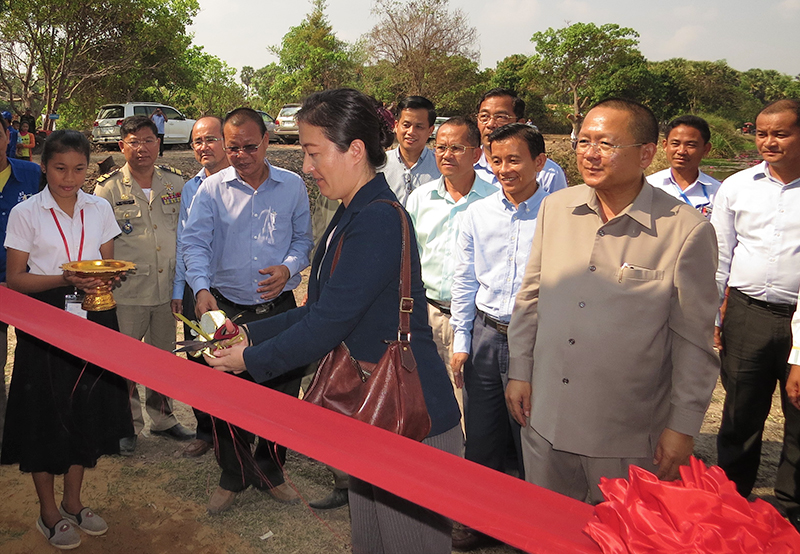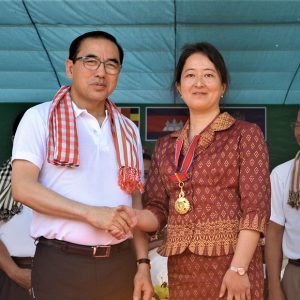
Yumiko Kura, WorldFish Country Director for Cambodia, has been awarded the Commander of Sahametrei medal, conferred by the Prime Minister of Cambodia, for her outstanding contribution to the country’s fisheries sector. The medal recognizes those who have provided distinguished services to the king and people of Cambodia.
“It’s humbling to receive this medal,” said Yumiko, following a special ceremony in Pursat province on Saturday. “I thank the Government of Cambodia for this honor, for their recognition of my own work and the work of my colleagues at WorldFish. Cambodia’s rich, diverse inland fisheries and their importance to local livelihoods and food security are what have compelled me to devote my efforts to protecting this extraordinary natural resource.”
Yumiko first arrived in Cambodia as a consultant in 2005, and supported the establishment of the WorldFish Mekong regional office. This was an exciting time for the Cambodian fisheries sector:
“When I arrived in Cambodia, the country’s fisheries sector was going through a major reform,” she said. “Hundreds of community-based fisheries management groups were being created, and they were in desperate need of external support. The first fisheries research institute had just been established within the Fisheries Administration (FiA), and WorldFish was well-placed to provide technical assistance to this institute during this period of change. I feel privileged to have gone through this journey together with colleagues at FiA.”

During her 14 years living in Cambodia, Yumiko’s research has focused on a number of areas, including balancing the ecological and socio-economic costs and benefits of water infrastructure on the Mekong river system, the effects of climate change on Cambodia’s fisheries, and ecosystems-based approaches to sustainable fisheries conservation and management in the country and the wider Mekong region.
The 2012 study, Community Fish Refuges in Cambodia – Lessons Learned, co-authored by Yumiko and conducted in collaboration with FiA, drew attention to the importance of fisheries in rice fields and other seasonal wetlands, and highlighted the need for improved management and conservation of this previously underappreciated resource.
The research of Yumiko and her colleagues has been instrumental in developing innovative fish conservation activities in Cambodia’s seasonally-flooded rice fields. These efforts have led to significant increases in wild fish populations, and increases in fish catch and consumption, including of small, micronutrient-rich fish species. The poorest households achieved the highest increases in fish catch, and all households were able to earn more income from selling fish. This work is benefitting almost 300,000 people in provinces surrounding the Tonle Sap Lake.

In addition to leading WorldFish in Cambodia, Yumiko is well-recognized both in the country and the wider Mekong region for her contributions to fisheries policy, aquatic resource management and biodiversity conservation. Yumiko contributed to the Cambodian Fisheries Law, as well as a number of policies and strategies for community fisheries management, gender mainstreaming and climate change adaptation.

“This is wonderful recognition of Yumiko’s years of hard work and dedication in a country she cares about so profoundly,” said Dr. Gareth Johnstone, Director General, WorldFish. “Having worked alongside Yumiko in Cambodia for several years, I’ve seen how her research and leadership have helped shape different management practices that are having a real impact on the lives of small-scale fishers.”
Yumiko thanked colleagues and counterparts from WorldFish and the Cambodian Fisheries Administration who have collaborated on both her research and on initiatives to scale-out good practices identified through research. She also thanked development partners, including the United States Agency for International Development (USAID) and the Ministry of Foreign Affairs of Japan, for supporting her work in Cambodia.
She also emphasized the importance of considering Cambodia’s valuable wild fish populations in the country’s development priorities:
“It’s important that investments in irrigation and road infrastructure are implemented with environmental safeguards for fish,” she continued. “Simple and inexpensive solutions, such as building culverts under roads and dikes and opening canal gates during the fish spawning season to allow fish to move across barriers and reach various aquatic habitats, can add value to infrastructure projects by enabling local fish populations to thrive and continue to be available to the millions of Cambodians who rely on them.”